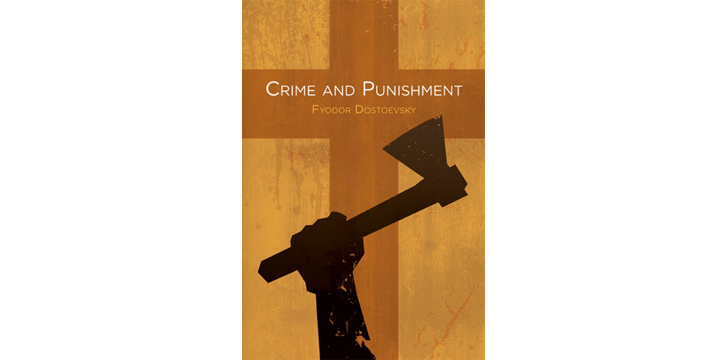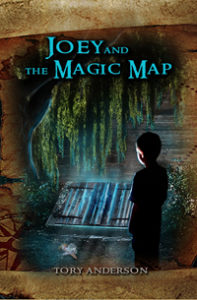There are three different times in your life when you might read a classic. It might be early in your life just out of curiosity. This is usually an act of self-development stemming from thoughts of “If I haven’t read the classics, then I’m not a serious reader.” In my experience reading the classics in this stage leads to confusion. You know the classic was a great book, but after finishing you still have no understanding what you just read.
The second time of life to read a classic is when you are forced to in high school or college. This reading almost always leads to disgust and “The classics are overhyped” attitude. The teacher gives you a short period of time to read the massive book. The teacher shoves all of its qualities down your throat. All this while you are confused and feeling stupid because you can’t understand what you are learning, and you hate to be forced to like anything.
The third time in your life is when life has prepared you for the book. You approach the book on your own terms. You have the life experience and reading experience necessary to understand the code the classic is written in. Suddenly, with no teacher shoving anything down your throat, all on your own you see beauties and wonders in the book. The book simply brings you to your knees for all the innate reasons that make it a classic. It’s a sacred experience. This is the experience I just had with Dostoevsky’s Crime and Punishment.
I’m not going to try to convince anyone of the beauty and power of this book. Either you are in the first two periods of your life and are confused an/or totally disgusted by the book, or you have reached the point where Crime and Punishment is the puzzle piece that perfectly fills in the hole in your life and you love it. There can be no convincing. The book either blows you away, or you hate it.
This was my second reading of Crime and Punishment. My first reading was the “confusion” reading. I was an adult during that reading, but still unprepared. I could not make sense of being placed in the ((arrogant, troubled, demented, sick, warped genius, kind) pick your adjective)) mind of Raskolnikov. He did far too much thinking, and did that thinking in such an obnoxious, arrogant manner that I couldn’t figure out how to feel about him. I knew there was something to be gained from experiencing his warped, angry, sick existence that was touched by moments of Christ like compassion, but I just didn’t get it.
I was so confused by Raskolnikov’s mental ramblings that I didn’t see all the life Dostoevsky put in the book. I overlooked the abundant scenes of St. Petersburg street life. Mostly it was wretched life, but shown so beautifully for those wanting to suck up as much life experience as they can. I missed the masterly written motherliness of Raskolnikov’s mother. I missed the unequaled beauty, intelligence, and grace of his impoverished sister, Dounia. Their close sibling relationship left me jealous. I missed the kind of friendship one can only dream about in Razumihin. I missed the full horror of Sonia’s family life and thus the full beauty of all that is Sonia. Nope, on that first reading all I got was an arrogant, sick, angry young man who kills two women and eventually turns himself.
Finally, at 58 years old, I read the book again. I wasn’t looking for a transcendent experience. On the contrary. I was simply looking for something I could read for free on my tablet. Ironically, the free copy didn’t work well on my tablet so I had to purchase a copy. I’m glad the $8.00 didn’t put me off. Apparently I was ready to read this classic.
Maybe I should be frightened by the fact that Raskolnikov’s state of mind didn’t confuse me for a moment this time. I understood him in a very personal way, and I felt compassion. I trembled at the horror of Raskolnikov’s position. He has willingly murdered two women. He is surrounded by people who love and respect him. They would never conceive in a thousand years that he committed the murders. They think his odd behavior is only due to physical sickness and his general moody nature. These wonderful people continually reach out to him wanting him to be happy and one with them again. Only you and Raskolnikov know that the separation between he and them can never be bridged.
Somehow Dostoevsky gave me compassion for the wretched young murderer. I searched deeply for a way where everything would be made alright. I found none. This could be nothing but depressing, but Dostoevsky turned it, instead, into a cleansing experience for me. Only masterly written tragedy can achieve this.
My skin prickled when I read the scene where Razumihin, Raskonikov’s wonderful but unappreciated friend, first realizes what Raskolnikov might have done:
It was dark in the corridor, they were standing near the lamp. For a minute they were looking at one another in silence. Razumihin remembered that minute all his life. Raskolinikov’s burning and intent eyes grew more penetrating every moment, piercing into his soul, into his consciousness. Suddenly Razumihin started. Something strange, as it were, passed between them . . . . Some idea, some hint, as it were, slipped, something awful, hideous, and suddenly understood on both sides. . . . Razumihin turned pale.
“Do you understand now?” said Raskolnikov, his face twitching nervously.
Raskolnikov’s salvation—yes, Raskolnikov has done something he cannot be saved from, and yet for the willing reader salvation still appears in a way—comes from his involvement with one of the most pitiful and wretched families in St. Petersburg. Sonia’s family predicament is heartrending. Raskolnikov’s travil through darkness sees sudden bursts of light when he makes contact with the Ivanovna family. One scene during this darkness is especially beautiful. It is after Sonia’s father has died after falling drunk in front of a heavy cart and is run over. Raskolnikov, amid his darkness, has given them all the money he has. Sonia’s little half-sister runs after the him in the dark street. They talk, and then:
“Do you love sister Sonia?”
“I love her more than anyone,” Polenka answered with a peculiar earnestness, and her smile became graver.
“And will you love me?”
By way of answer he saw the little girl’s face approaching him, her full lips naively held out to kiss him. Suddenly her arms as thin as sticks held him tightly, her head rested on his shoulder and the little girl wept, softly, pressing her face against him.
. . .
“Polenka, my name is Rodion. Pray sometimes for me, too. ‘And Thy servant Rodion,’ nothing more.”
“I’ll pray for you all the rest of my life,” the little girl declared hotly, and suddenly smiling again she rushed at him and hugged him warmly once more.
The fact that I came to an understanding with Crime and Punishment on this reading frightens me a little. It means that I have gained an understanding, and a compassion, for Raskolnikov. Raskonikov is a disturbed young man. Yet through Raskolnikov, Dostoevsky has enlightened my life and given me hope in a way deeper and more meaningful than perhaps any other book I have ever read.
__________________________________________________________________________________
These books by Tory Anderson are now available on Amazon in Kindle and paperback format:





